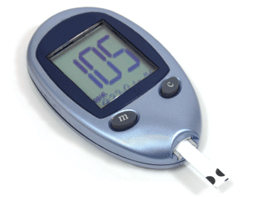New Research Links a Specific Kind of Dietary Fat to Increased Risk of Type 2 Diabetes
 The inability to maintain glucose levels in the blood is a common health problem associated with nutrition related diseases such as metabolic syndrome and type 2 diabetes. Though genetic predisposition does play a role, it is factors such as weight, food choices and lifestyle habits that contribute the most risk to your likelihood of developing diseases such as these.
The inability to maintain glucose levels in the blood is a common health problem associated with nutrition related diseases such as metabolic syndrome and type 2 diabetes. Though genetic predisposition does play a role, it is factors such as weight, food choices and lifestyle habits that contribute the most risk to your likelihood of developing diseases such as these.
In an effort to discover ways to reduce a person’s likelihood of developing either of these conditions, Spanish researchers have conducted a study that takes a look at the relationship between dietary saturated fat, monounsaturated fat and polyunsaturated fat with blood glucose control and insulin sensitivity in people with normal and high fasting triglycerides. The scientists found that unlike other fatty acids, the monounsaturated fat oleic acid, which is that found in olive oil, was effective in regulating insulin secretion and controlling blood sugar spikes after meals. Additionally, saturated fatty acids which are those found in dairy and meat products impaired post prandial (after meal) beta cell function and insulin sensitivity. (Beta cells are those cells located in the pancreas that produce insulin).
The findings from this study reveal that eating an abundance of foods that contain saturated fatty acids create more demand for insulin secretion which can then lead to your cells becoming resistant to insulin. Insulin resistance is considered a precursor for damaging your beta cells and progression to type 2 diabetes in the long term.
So, what can you do with the results of this study? Use extra virgin olive oil (a monounsaturated fat) as part of a dressing for your salads, as the oil for sautéing vegetables and meat, to make a garlic and oil sauce for pasta or even as a replacement to the butter you would use on bread.
Your turn to take action: How do you incorporate olive oil into the foods you eat?

Leave a Reply
Want to join the discussion?Feel free to contribute!